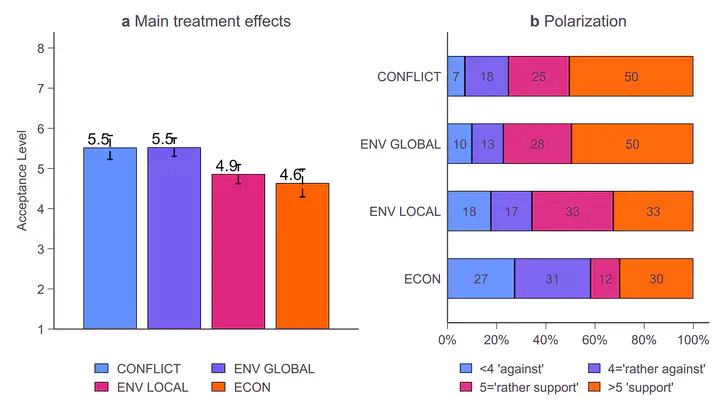 Acceptance and polarization of different types of migrants
Acceptance and polarization of different types of migrants
Abstract
We study how economic, conflict, and environmental drivers of migration influence immigration acceptance in a receiving country. We carried out an online survey experiment in autumn 2015 with 686 student participants from the University of Innsbruck in Austria. In the survey experiment, respondents state their acceptance for a fictitious migrant from Chad where we vary the following causes of the migration decision: (1) violent conflicts, (2) environmental degradation due to global climate change, (3) environmental degradation due to local overuse, and (4) better economic prospects. We find that respondents support migrants who move because of climate change as much as conflict migrants. Acceptance is lowest for migrants who decide to leave for economic reasons, while it is slightly higher in the case of environmental degradation due to local overuse. Strikingly, a sizable share of respondents (25%) would even reject conflict migrants. Respondents who perceive a negative correlation between welfare, crime rates and job opportunities, and the presence of immigrants display lower immigration acceptance for all motives underlying the migration decision. In addition, we find heterogeneous effects depending on the respondents’ gender and political affiliation. Respondents with right-wing party preferences disclose lower acceptance levels for all causes except conflict. Female respondents are more accepting of climate migrants and less of economic migrants than men. This paper informs the debate around the ongoing political and societal polarization in Europe and elsewhere on the acceptance of different types of migrants.